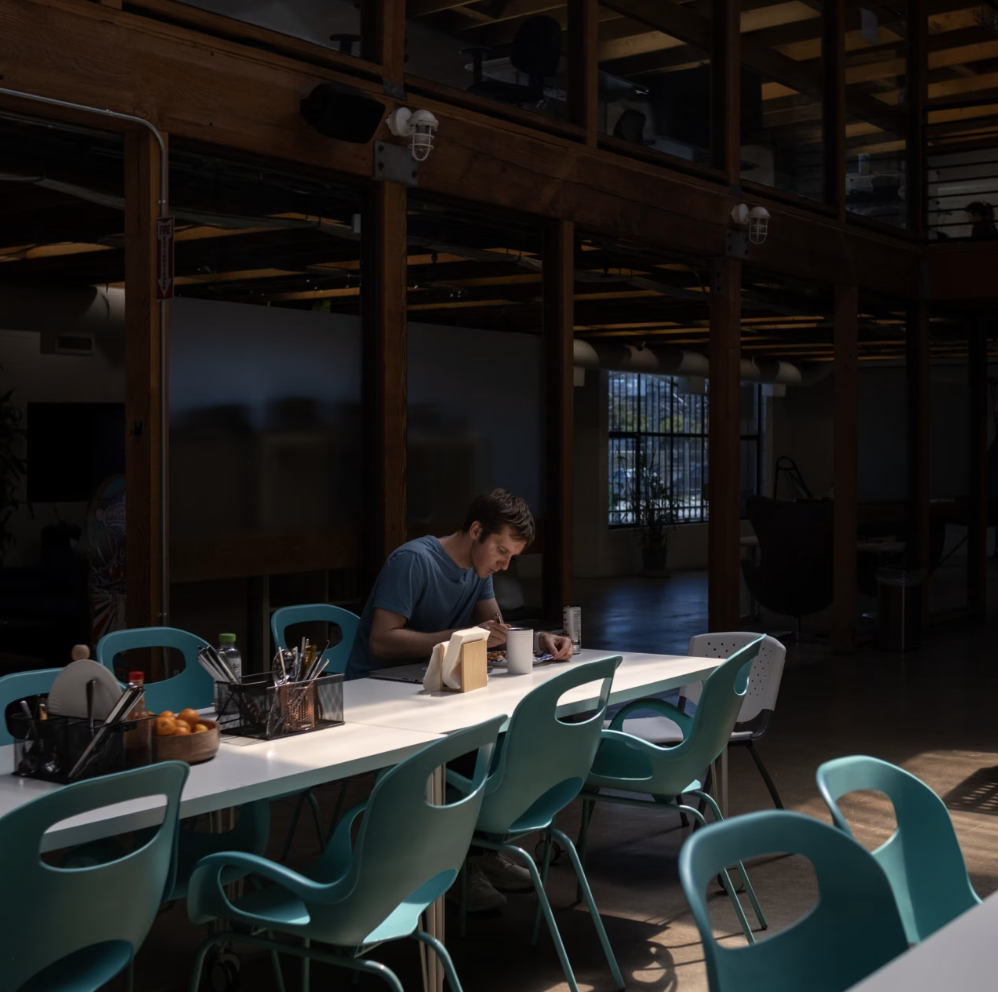On Sunday, 28-year-old Marty Kausas, co-founder of Pylon, an AI company in the US, was still at the office. He said he had been working 92 hours a week for three consecutive weeks. His goal is to build a $10 billion company in 10 years.
"There are easier ways to make money, but I want to do something more meaningful than money," Kausas said. His startup has raised $51 million.
In San Francisco, it's not uncommon to find tech company founders hoping to create groundbreaking products. They are racing to join the ranks of tech billionaires who have changed the world.
"You have to be really determined," said 24-year-old Mackay Grant. Last year, he skipped his college graduation to move to San Francisco and start an AI finance startup.
Inspired by the story of Facebook's CEO, America's new startup generation grew up with iPhones and started coding as teenagers. They rarely drink alcohol, downplay work-life balance, and are caught up in a 24/7 competition to see who is the most obsessed with work.
"Why go to a bar when you can use that time to build a company?" said 23-year-old Emily Yuan, co-founder of Corgi.
Their limited free time is also spent on work-related social activities. Some relax by exercising and using saunas where they can discuss future funding rounds.
 |
Marty Kausas, 28, works at Pylon's office in the US on the weekend. Photo: Eli Imadali/WSJ. |
Marty Kausas, 28, works at Pylon's office in the US on the weekend. Photo: Eli Imadali/WSJ.
To outsiders, their lives may seem monotonous and dull. They are fortune seekers with no time to live, filling their stomachs with packaged meals at their desks. But for these young CEOs, it's the price they have to pay.
Haseab Ullah, the founder of an AI chatbot, eats boxed lunches every day to save time. He pays $700 a month to stay in a "sleeping pod" located in the common area of a former office. "It's like crawling into a coffin every night," he said.
Kausas of Pylon also planned to live in the office but later rented an apartment nearby. He also orders takeout so he doesn't have to waste time thinking about food. His ideal employee is a "PhD" - which stands for "poor, hungry, and desperate."
25-year-old Nico Laqua, co-founder of Corgi, stated that she only hires people willing to work 7 days a week. Of her more than 40 employees, about 30 have experienced failed startups. The welcome gift for new employees is a mattress for sleeping in the office. Laqua said that although not required, two-thirds of her first employees tattooed the company logo on themselves.
Jared Friedman, a partner at startup incubator Y Combinator, thinks this work ethic is reminiscent of the early days of the Internet. "I see this as a repeating moment in history," Friedman said.
The rise of AI has energized the tech world, creating a sense that the industry is at a historic moment.
18-year-old Arlan Rakhmetzhanov dropped out of high school in Kazakhstan and moved to San Francisco after raising $1 million for his startup. After dinner with other founders, he rushed to a potential client's apartment to install software and left at 1 a.m. with a new contract.
Rakhmetzhanov always carries his laptop to fix software bugs anywhere, from walking and eating to even in the restroom. "I've never tried to separate work and social life," he said.
His success inspired his father and brother to move to the city to pursue their own AI startups.
"The tremors from San Francisco have reached the steppes of Kazakhstan," said his father, Sanzhar. "This is America."
Minh Phuong (WSJ)












